Are you looking to express appreciation for your hard work while formally initiating a salary increase? Writing a letter to seek approval for an employee salary increase can be a crucial step in recognizing their contributions. It's important to highlight the reasons behind the request, showcasing achievements and the value brought to the team. Curious about how to structure such a letter effectively? Let's dive into the essential components that will make your request stand out.

Recipient and Sender Details
An employee salary increase approval letter serves as an official document to communicate the decision regarding a salary adjustment for an employee. Key details include the recipient's name (e.g., John Doe), position (e.g., Marketing Specialist), and department (e.g., Marketing Department) as well as the sender's name (e.g., Jane Smith), title (e.g., Human Resources Manager), and company name (e.g., ABC Corporation). Important components also might include the effective date of the salary increase, the new salary amount (e.g., $65,000 annually), and any relevant performance criteria that influenced this decision, particularly for recognition of exceptional work or contributions to team goals, thereby reinforcing employee motivation and retention strategies.
Introduction and Appreciation
Employee salary increases play a crucial role in recognizing and rewarding the contributions of dedicated staff members. Expressing appreciation enhances morale and fosters a positive work environment. In business settings, appreciating employee efforts, such as hitting performance targets or exceeding sales goals, can lead to increased motivation and productivity. Acknowledging specific achievements, like leading successful projects or innovating processes, demonstrates management's acknowledgment of individual value. By reinforcing this culture of appreciation, organizations can cultivate loyalty and reduce turnover rates, ultimately contributing to long-term success.
Justification for Salary Increase
In a competitive business landscape, employee performance evaluations are crucial for determining salary adjustments. Employee contributions, such as exceeding quarterly revenue targets by 25% and improving client satisfaction scores (up to 90%) through exceptional service, warrant a salary increase. Additionally, market analysis indicates that similar roles within the industry show compensation benchmarks approximately 15% higher. Retaining talent is essential for maintaining productivity and reducing turnover costs, which can exceed 30% of an employee's annual salary. A salary increase not only acknowledges individual achievements but also aligns compensation with industry standards, promoting long-term loyalty and motivation. Implementing this change reflects the organization's commitment to recognizing hard work and fostering a rewarding workplace culture.
Details of New Salary and Effective Date
During the annual review process, determining employee compensation is critical for maintaining morale and productivity. The newly approved salary for the employee, which will reflect their contributions and industry standards, is set at $72,000 annually, effective from January 1, 2024. This increase acknowledges the employee's consistent performance, demonstrated through key performance indicators such as project completion rates and teamwork dynamics. Additionally, the decision aligns with current market trends in the information technology sector, ensuring competitive compensation in relation to similar roles within the region. It is important to communicate these details clearly to facilitate understanding and transparency regarding the salary adjustment.
Closing Remarks and Encouragement
An employee salary increase reflects organizational appreciation, motivating staff to enhance productivity. Recognition of efforts, commitment, and achievements fosters a positive workplace culture. Ensuring fair compensation aligns with industry standards, impacting job satisfaction. Positive feedback encourages personal and professional growth, reinforcing loyalty and engagement. A well-communicated salary increase supports overall employee morale, contributing to long-term retention strategies.

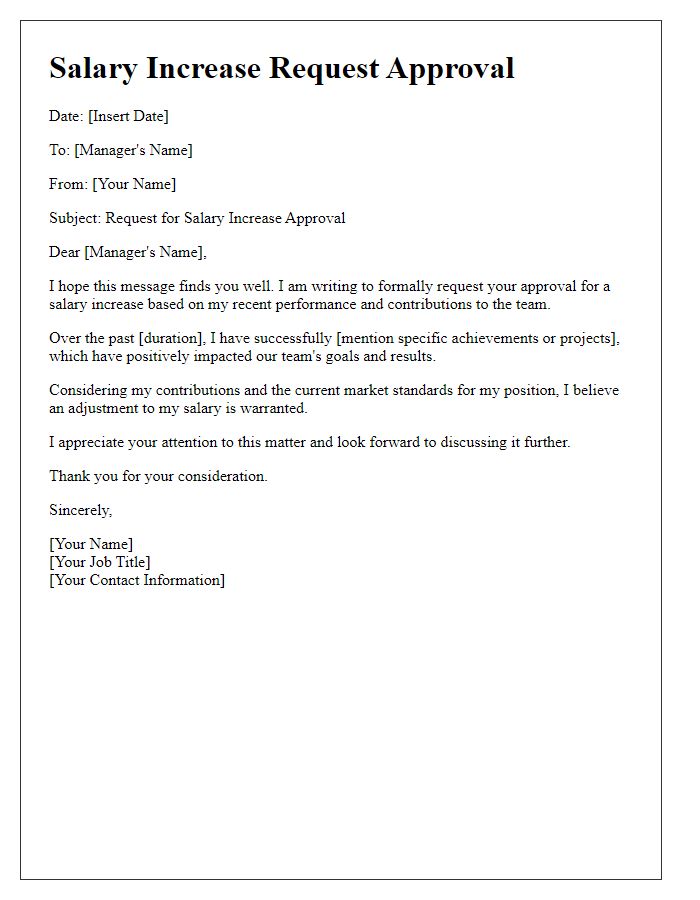
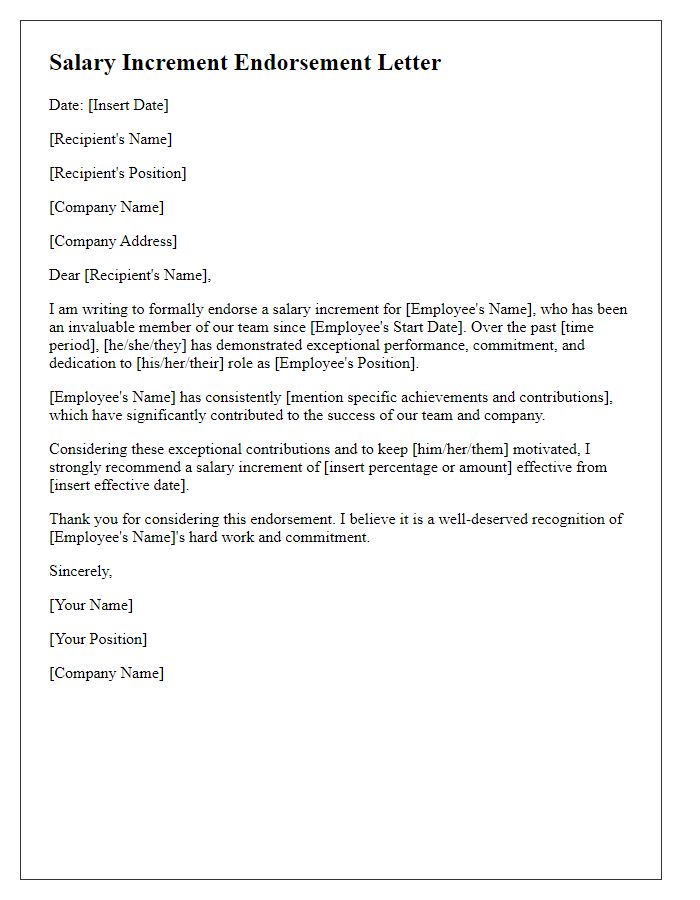
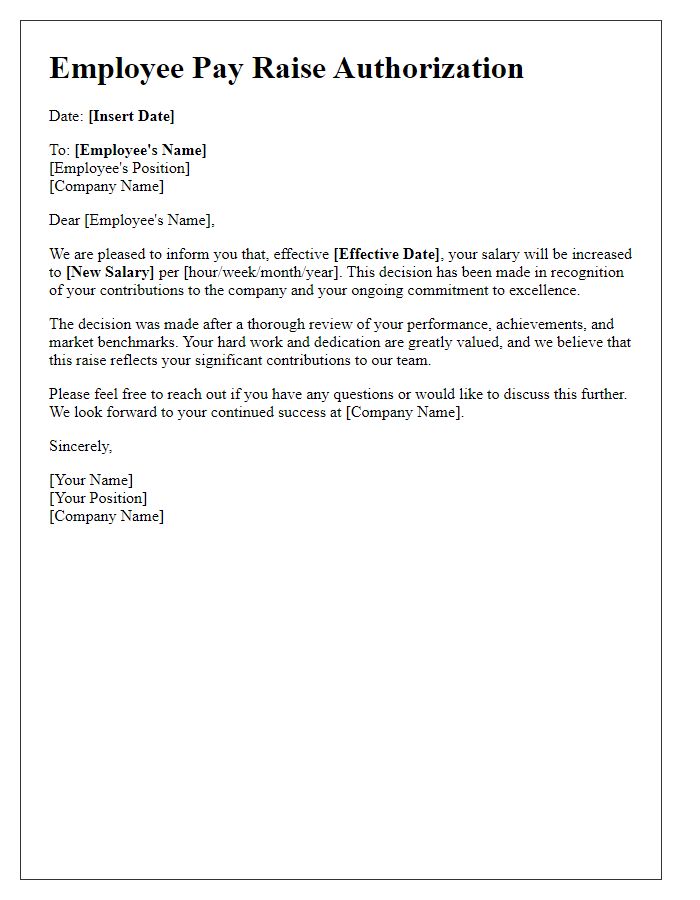
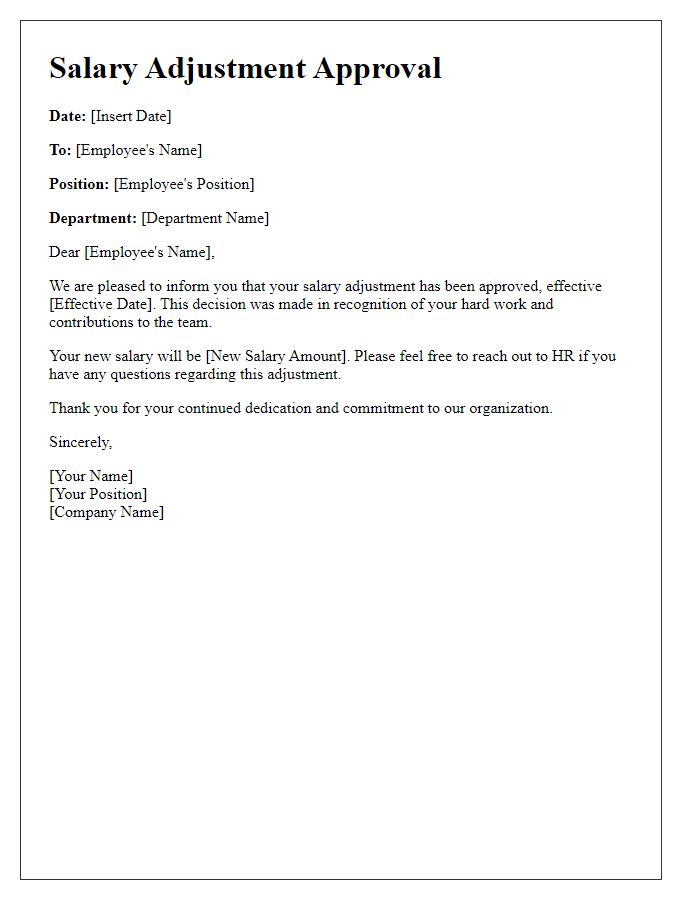
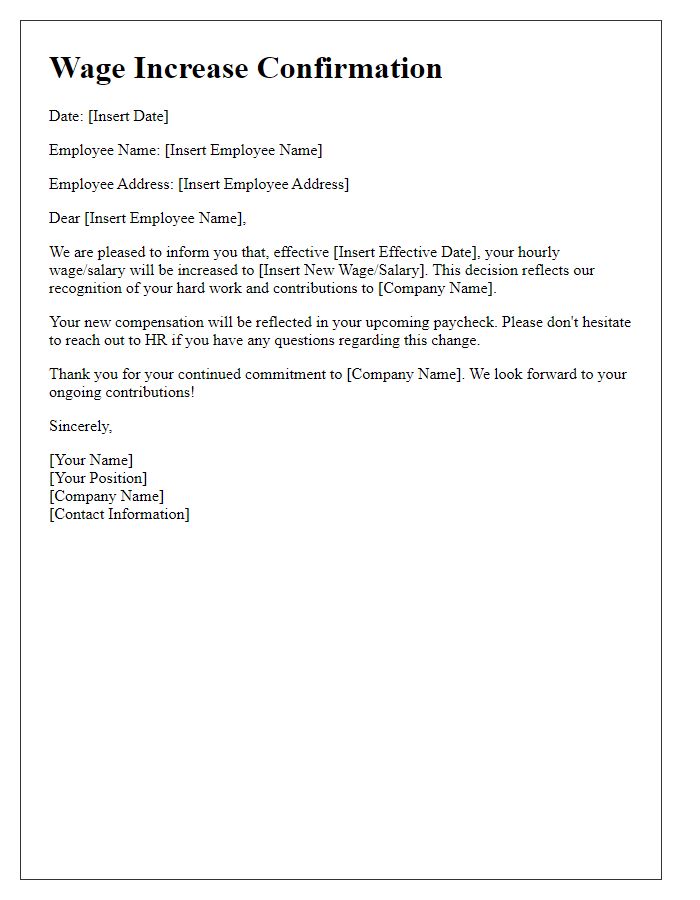
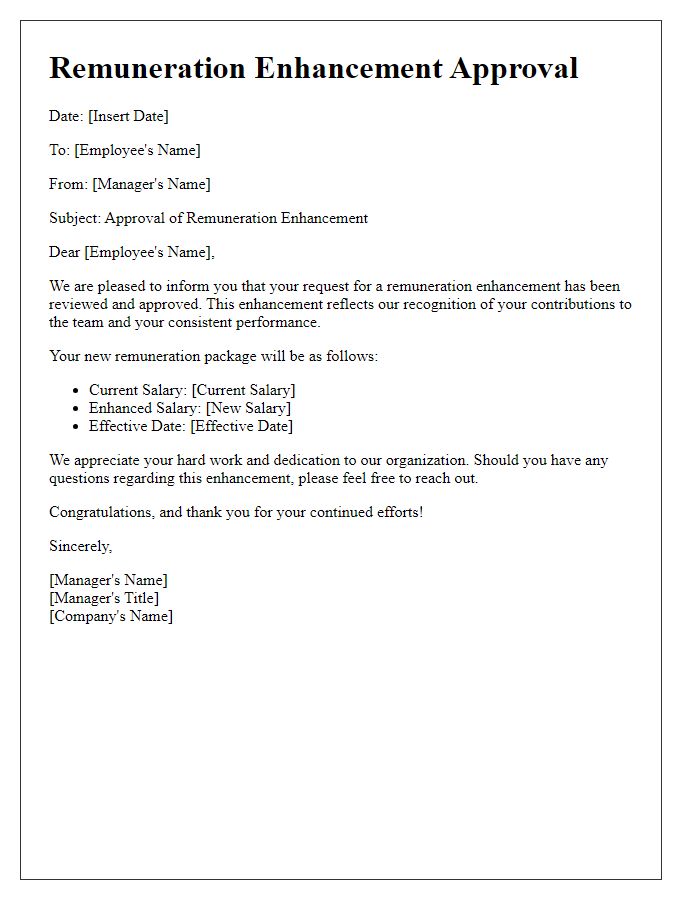
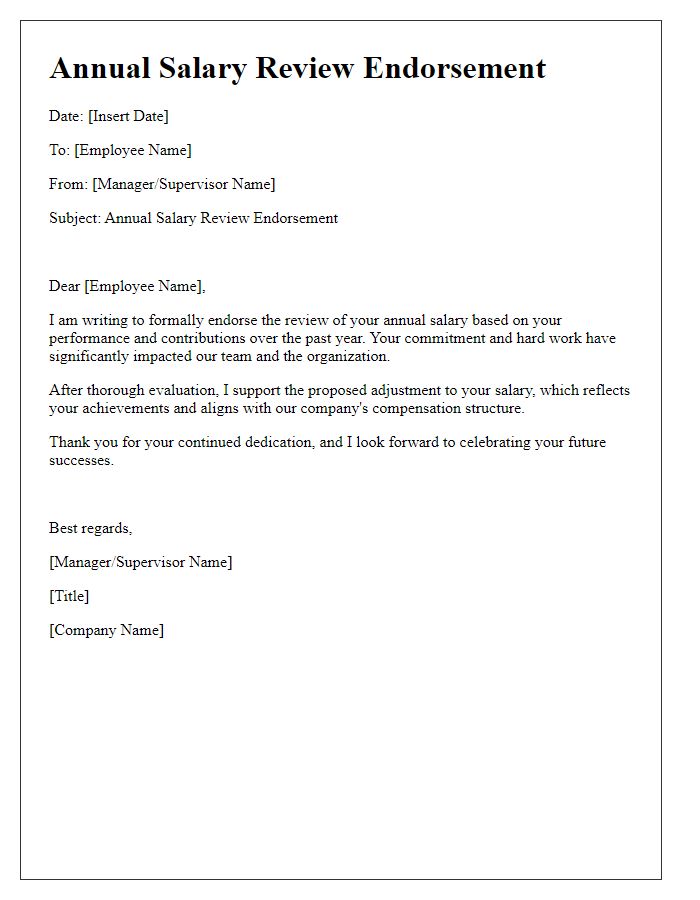
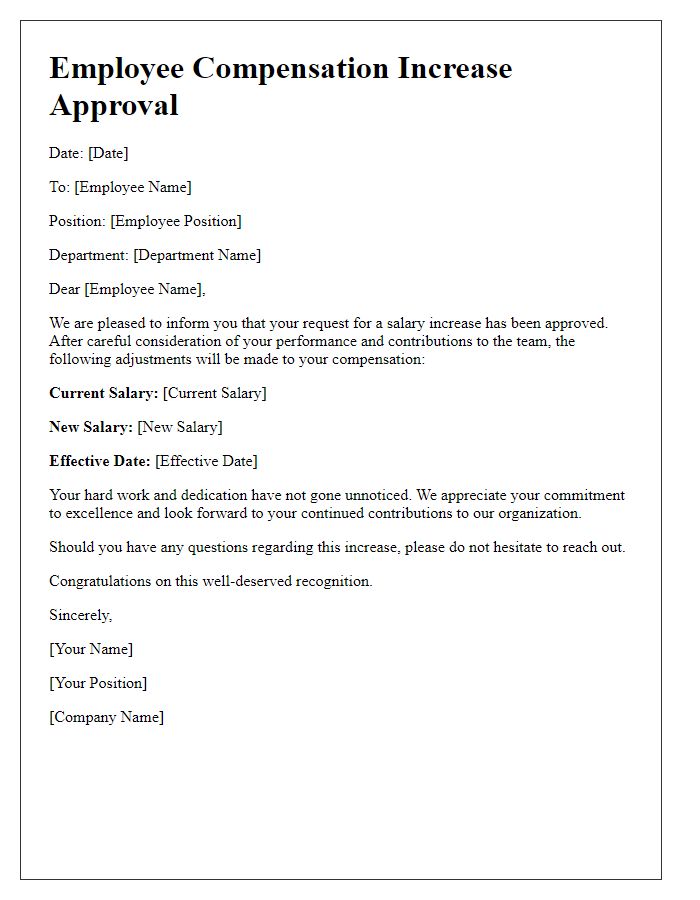
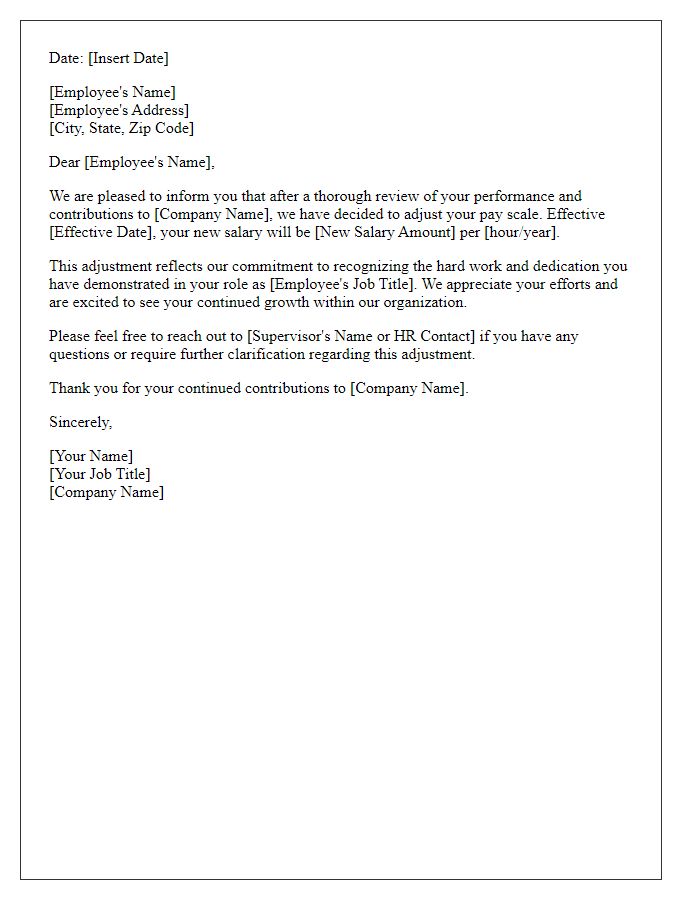
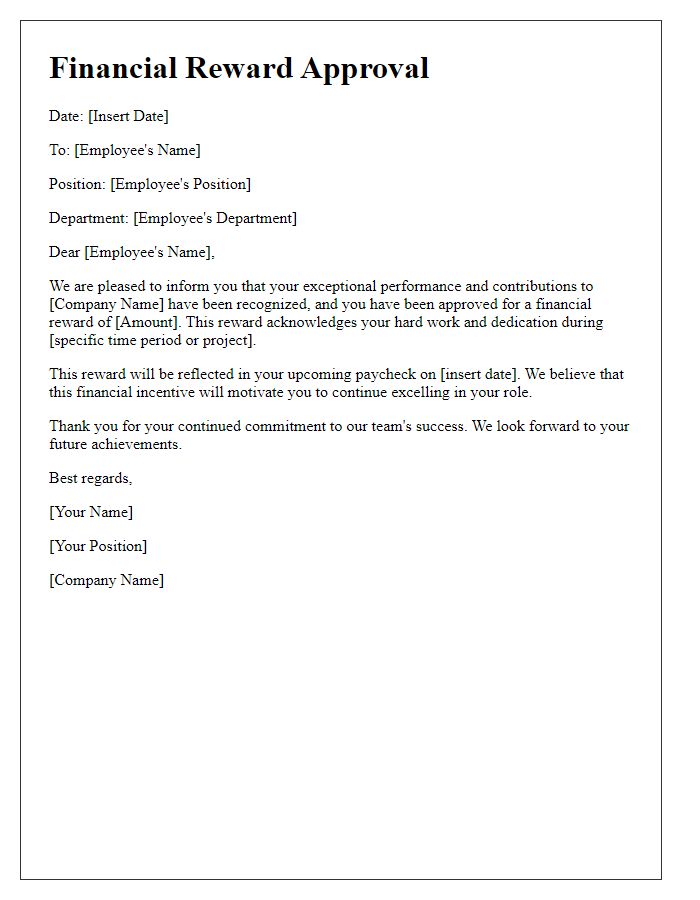


Comments